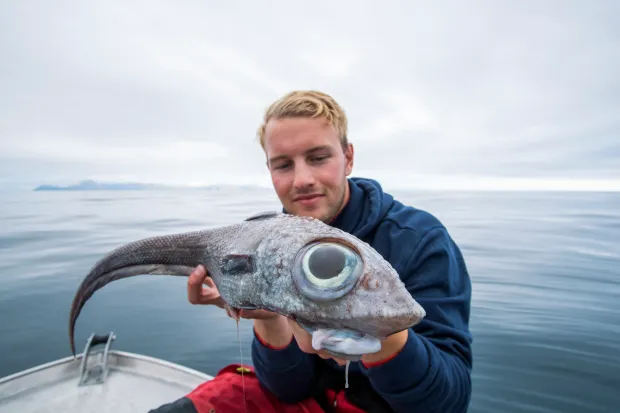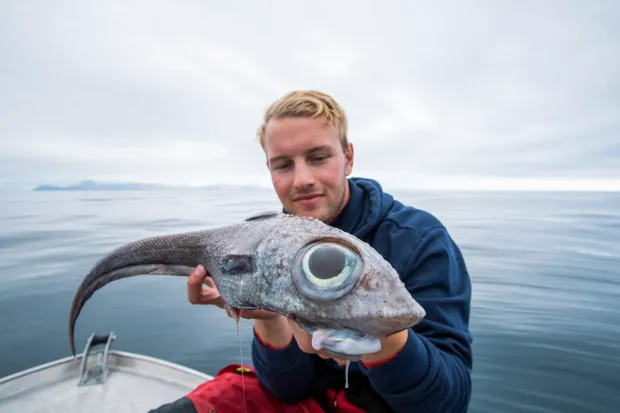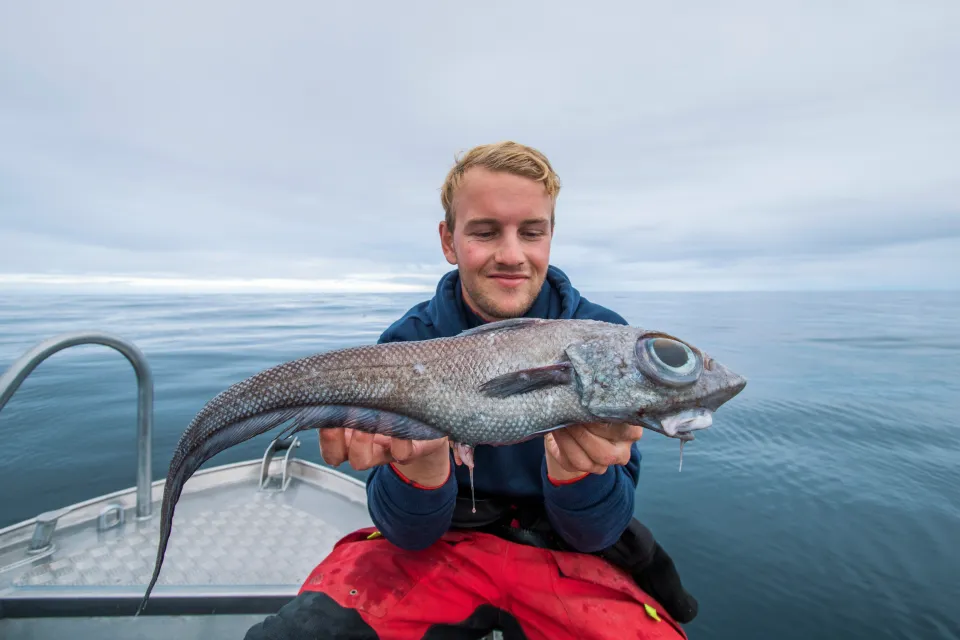
Would you be terrified or thrilled if you caught a gigantic fish with the biggest eye to head ratio when you just went fishing with your friend? That’s what happened to Oscar Lundahl. This Norwegian teen embarked on an adventure that he would never forget, catching one of the gigantic fishes, famous for their largest eye-to-head ratio in the world. Not only this was a huge once in a lifetime moment for him but it also embraced the hidden life of the mysterious deep ocean.
Let’s delve into the remarkable story of Oscar Lundahl and his astonishing fishing tale.

In September 2019. 19 year old Oscar Lundahl went on a fishing trip with his friends. As they went far along, Oscar lowered his fishing line into the 800 meters depth ocean. As he felt a powerful tug in the other end he began to reel the catch. He expected a big typical fish like blue halibut but to his utter surprise, he saw a giant fish with bulbose eyes emerging from the depth.
Astonished Oscar tried to observe this mysterious fish, but the fish was already dead due to the pressure fluctuation.
“It was pretty amazing. I have never seen anything like it before. It just looked weird, a bit dinosaur-like.”
Oscar
Turned out this mysterious fish was a Grenadier. These gigantic creatures make their homes in the deep waters of the Antarctic region. Grenadiers stay about 200 to 7,000 m (660–22,970 ft) below, very much close to the sea floor. Those gigantic eyes help them see in the darkness of the deep ocean. Even though the face is scary to look at grenadiers eat crustaceans and sea cucumbers. The average life expectancy of grenadiers is 8 years, though life expectancy can be varied in different families of grenadiers. Grenadiers make up 15% population of the deep sea fish population
Even though eyes to head ratio is highlighted, the lateral line system of grenadiers is also very impressive. Their lateral line system helps Grenadiers detect prey, navigate through their environment, and stay aware of the potential threats nearby. Some species of Grenadiers even have photophores, which are light-producing organs. These organs might help them attract mates or prey.

In the dark, deep parts of the ocean, Grenadier fish are like quiet protectors. They help make sure that life in the cold, dark waters stays balanced. By learning more about these mysterious fish, we can better understand how amazing the ocean is. It also reminds us to take care of the ocean and all the precious creatures that live there, so they’ll be around for generation